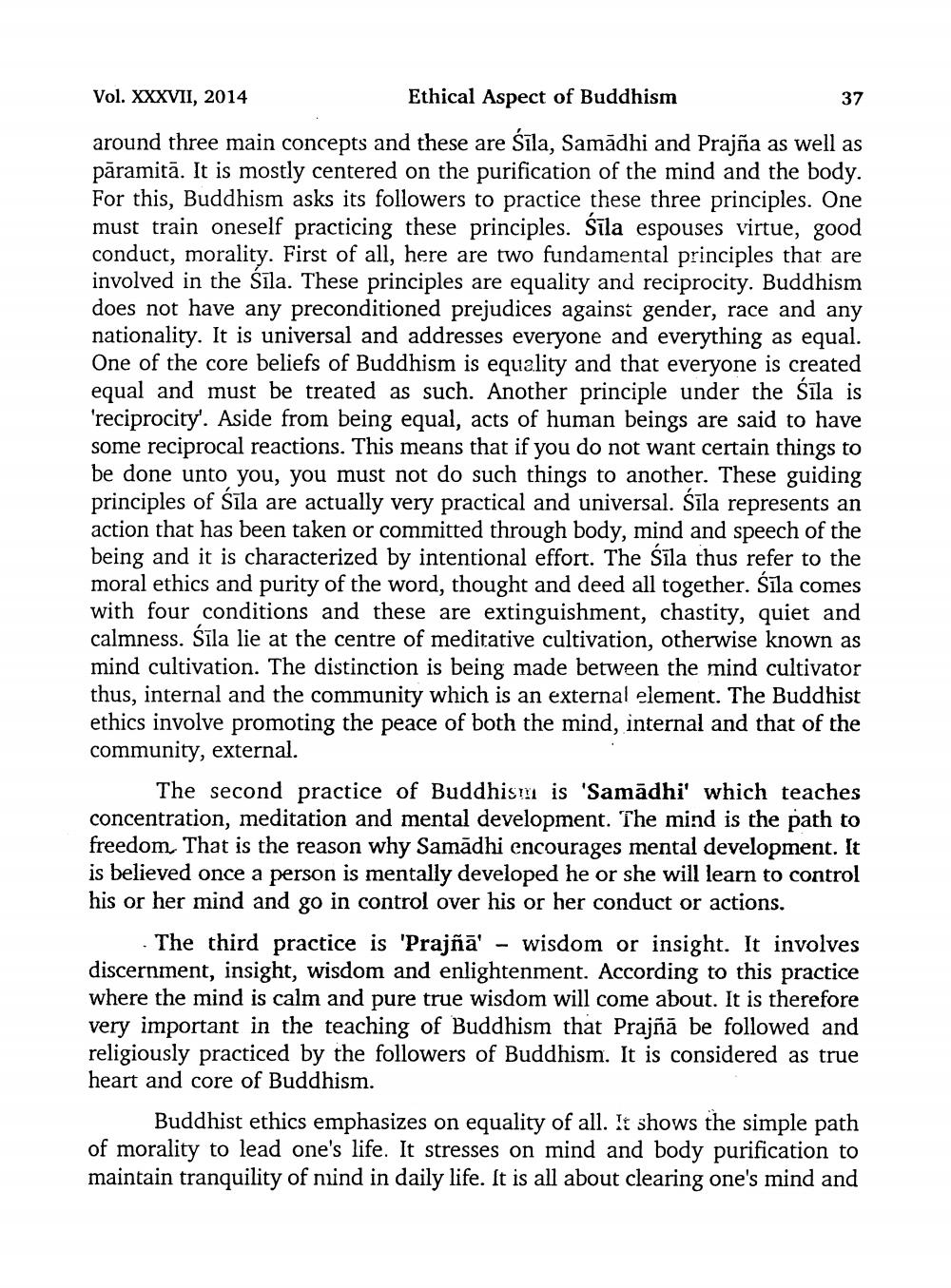________________ Vol. XXXVII, 2014 Ethical Aspect of Buddhism 37 around three main concepts and these are sila, Samadhi and Prajna as well as paramita. It is mostly centered on the purification of the mind and the body. For this, Buddhism asks its followers to practice these three principles. One must train oneself practicing these principles. Sila espouses virtue, good conduct, morality. First of all, here are two fundamental principles that are involved in the Sila. These principles are equality and reciprocity. Buddhism does not have any preconditioned prejudices against gender, race and any nationality. It is universal and addresses everyone and everything as equal. One of the core beliefs of Buddhism is equality and that everyone is created equal and must be treated as such. Another principle under the Sila is 'reciprocity'. Aside from being equal, acts of human beings are said to have some reciprocal reactions. This means that if you do not want certain things to be done unto you, you must not do such things to another. These guiding principles of Sila are actually very practical and universal. Sila represents an action that has been taken or committed through body, mind and speech of the being and it is characterized by intentional effort. The Sila thus refer to the moral ethics and purity of the word, thought and deed all together. Sila comes with four conditions and these are extinguishment, chastity, quiet and calmness. Sila lie at the centre of meditative cultivation, otherwise known as mind cultivation. The distinction is being made between the mind cultivator thus, internal and the community which is an external element. The Buddhist ethics involve promoting the peace of both the mind, internal and that of the community, external. The second practice of Buddhism is 'Samadhi' which teaches concentration, meditation and mental development. The mind is the path to freedom. That is the reason why Samadhi encourages mental development. It is believed once a person is mentally developed he or she will learn to control his or her mind and go in control over his or her conduct or actions. The third practice is 'Prajna' - wisdom or insight. It involves discernment, insight, wisdom and enlightenment. According to this practice where the mind is calm and pure true wisdom will come about. It is therefore very important in the teaching of Buddhism that Prajna be followed and religiously practiced by the followers of Buddhism. It is considered as true heart and core of Buddhism. Buddhist ethics emphasizes on equality of all. It shows the simple path of morality to lead one's life. It stresses on mind and body purification to maintain tranquility of mind in daily life. It is all about clearing one's mind and




